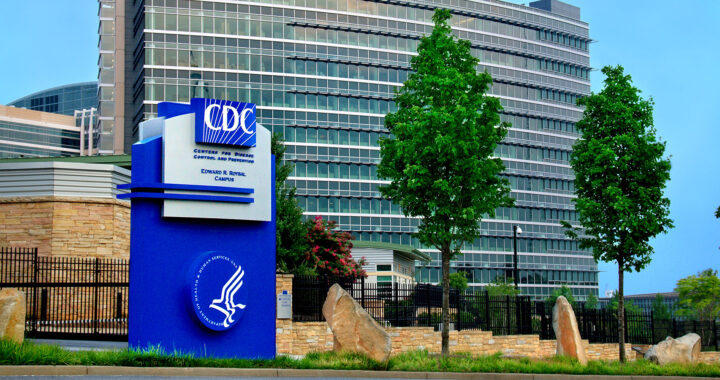The sudden but somewhat expected removal of Susan Monarez as Director of the U.S. Centers for Disease Control and Prevention on 27 August 2025 has intensified national debate regarding political influence in scientific institutions. Monarez, who was confirmed only weeks earlier under a recently enacted Senate approval process, faced dismissal that has raised concerns regarding institutional stability and impartiality in public health governance.
Who is Susan Monarez: Established Medical Science and Public Health Expertise and First CDC Director Without a Medical Degree
Susan Patricia Coller Monarez, born in 1974, built a career integrating research and health security policy. She obtained her undergraduate and postgraduate degrees in microbiology and immunology from the University of Wisconsin-Madison. She then pursued postdoctoral research at Stanford University School of Medicine, focusing on the treatment of infectious diseases.
Monarez transitioned to science and technology policy. She served as a fellow at the American Association for the Advancement of Science, where she contributed to the White House Office of Science and Technology Policy and the United States National Security Council. Her focus areas included antimicrobial resistance, health technology, and pandemic preparedness.
She then became Deputy Assistant Secretary for Strategy and Data Analytics at the Department of Homeland Security, where she oversaw health-related research initiatives and was responsible for fostering international collaboration. Furthermore, in 2023, she was appointed deputy director of the technology-focused Advanced Research Projects Agency for Health.
Monarez was named Principal Deputy Director and Acting Director of CDC on 23 January 2025 and was later nominated by Donald Trump for directorship on 24 March 2025. She temporarily stepped aside from her acting leadership role in compliance with the Vacancies Reform Act. Her nomination culminated in a 51 to 47 Senate confirmation vote on July 29.
Her official role as CDC director started on 31 July 2025. She was the first CDC director without a medical degree since 1953. It is still worth noting that Monarez possessed extensive expertise in microbiology, immunology, and policy. Many observers argued that these credentials provided a valuable perspective on public health policy and public health leadership.
Why was She Removed: Clash Over the Unscientific Stance of Robert F. Kennedy Jr. and Protests From Other CDC Leaders
Tensions emerged between Monarez and Health and Human Services Secretary Robert F. Kennedy Jr. Kennedy, a long-standing critic of vaccines, had already dissolved the CDC vaccine advisory committee and restricted COVID-19 vaccine recommendations to high-risk populations. Monarez opposed these measures because of the absence of scientific merit.
Reports confirmed Kennedy pressured Monarez to dismiss senior vaccine officials and to expedite vaccine approval in ways she considered unscientific. Former CDC colleagues stated Monarez made clear she would refuse actions that violated established science or law. Her resistance to political directives set the stage for her eventual removal from leadership.
The Department of Health and Human Services announced on 27 August 2025 that Monarez was no longer serving as CDC director. Her legal team challenged the dismissal and asserted that only the president has the authority to terminate a Senate-confirmed official. The White House later indicated that Trump executed the removal. Legal ambiguity remains unresolved.
A widespread fallout across the CDC ensued. Four senior leaders resigned in protest. These include Chief Medical Officer Debra Houry, National Immunization Center Director Demetre Daskalakis, Zoonotic Diseases Director Daniel Jernigan, and Public Health Data Director Jennifer Layden. Each cited growing politicization and erosion of scientific independence.
Dozens of CDC employees also staged walkouts at agency headquarters. Involved individuals expressed frustration that political interference had undermined their capacity to deliver evidence-based guidance. Their actions reflected serious institutional unrest and illustrated the wider consequences of leadership upheaval on public health morale and operations.
What is Next for CDC: Uncertainties in a Public Health Agency Due to Increasing Politicization and Erosion of Scientific Independence
Jim O’Neill, Deputy Secretary of Health and Human Services, was appointed Acting CDC Director on 28 August 2025. He is a tech investor and former Thiel Foundation executive who lacks medical training or background in public health. His appointment raised concerns that political loyalty and private sector ideology are being prioritized over scientific expertise.
The removal of Monarez has intensified scrutiny over the balance between scientific autonomy and political authority in federal health agencies. Politicians from both parties have called for hearings to reiterate the importance of preserving institutional credibility. The episode has become emblematic of broader national tensions between science and politics.
Ongoing politicization could erode public trust in the CDC, weaken vaccination campaigns, and impair national outbreak preparedness. The agency is facing unprecedented challenges in maintaining credibility, authority, and operational effectiveness during potential future crises with the departure of multiple senior leaders and the current anti-science direction.
Several lawmakers have further argued that the events surrounding. The dismissal underscores the urgent need for statutory safeguards that protect federal health leadership from undue political interference. Policy experts stress that without structural reforms, federal agencies risk losing their authority to issue impartial guidance during major public health crises.
The case of Monarez stands as a key moment in the history of public health leadership. It highlights how fragile the boundary between scientific decision-making and political influence has become. Nevertheless, as the CDC navigates this upheaval, its future direction will significantly influence the capacity of the U.S. government to protect population health.
FURTHER READINGS AND REFERENCES
- Dunbar, M. 28 August 2025. “CDC in Crisis: Who are the Top Officials Resigning or Being Forced Out?” The Guardian. Available online
- Gardner, S. 28 August 2025. “Monarez Would Not Cross ‘Red Lines’ Before She Was Fired, Confidant Says.” Politico. Available online
- Stolberg, S. G., Mandavilli, A., and Jewett, C. 27 August 2025. “White House Says New C.D.C. Director Is Fired, but She Refuses to Leave.” The New York Times. Available online
